- Home
- Farley Mowat
Eastern Passage Page 8
Eastern Passage Read online
Page 8
Next day we were privy to a show put on by a pair of porcupines smitten by spring fever. I found them in a spruce tree in our swamp, nose to nose on a horizontal branch quite literally screaming at each other with such intensity they could be heard half a mile away. But it was love not rage they were expressing. When they had sung themselves out they settled down to business – in the missionary position, but standing up.
Incidents like these, together with the return of migrant birds ranging from hummingbirds to turkey vultures; the chirruping and galumphing of toads and frogs in the swamp and ponds; and, in general, the all-pervasive aura of hell-for-leather sex permeating woods and waters; plus the relentless demands of gardening and of planting another thousand treelets, left me little time for my profession.
I did not get in touch with Dudley again until spring was almost over.
Dear Dudley: May 29, 1952
I’ve been too busy to write these last several weeks because the debtor’s prison has been hanging over my head, but now all is rosy again. Max has sold another story for me and the garden is up.
My peas are six inches high, my onions are edible, and radishes too, despite being nibbled by flea beetles. The woods and swamps are producing a bounty of wild leeks, fiddlehead ferns, and morel mushrooms. Our hens are laying like bloody mad. Soon we shall be independent of the cruel world of commerce.
Surprisingly the Governor General’s Literary Award Commission (Christ, what a mouthful) has picked me to get a medal for the best short story by a Canadian in 1951. It’s the one W.O. Mitchell and Maclean’s turned down!
Jack McClelland of McClelland and Stewart has finally awakened to the fact they are supposed to be my Canadian publishers and everything is hunky-dory between us. He and I call each other pet names and drink out of the same glass. Also, Max tells me that POD is the non-fiction choice of the Book Society in Britain, so all seems lovely in my literary garden.
The multiplicity of things to be done this spring have kept me away from the Machine, but a draft of the wolf story is with Max, who now says he likes it very much. The first time he saw it, back in 1950, it made him gag. But since then I have learned that flippancy and coyness are not my forte.
The boys’ book nears completion and I’ve sold another yarn to SatEvePost so we can afford to eat store food again. I’m beginning to think Canadian writers who have to live by their trade can only succeed in doing so by selling their wares to magazines. Publishing books has to be just a sideline. I also note that I am one of the very few independent writers in this country who makes his full-time living by writing. Sort of.
Another letter followed in early June.
We go to London (our London, on our Thames here in Ontario) on Friday to collect my lead medallion. No cash, of course. This is Canada! The bastards expect me to show up in full dress and, by God, don’t even offer to pay the travel expenses involved. I shall wear worn-out mukluks and a worm-eaten caribou parka and if that gives His Excellency peptic ulcers they’ll have nobody to blame but themselves.
The investiture was staged in the ballroom of the Hotel London. Trumpeted as the most significant literary event ever held in Canada, it was presided over by Governor General Vincent Massey, one of the country’s wealthiest men, and it gave Canada’s “best” writers a free dinner and a medal but nothing else.
Not even free drinks.
Earle Birney, winner of the poetry award; sports writer Scott Young; and some other “literary scribes,” as we were later stigmatized, adjourned to the men’s washroom of the hotel, where we played a kind of bowling game by rolling our medals into the urinals (each of which we had numbered) ranged against the far wall of the lavatory. The prize for the highest score was to have been a bottle of rum donated by Blair Fraser, one of Maclean’s editors; but we ended by sharing it in a series of decidedly irreverent toasts to the organizers of the affair.
On June 27 the mail contained a clipping from the summer issue of The Beaver, sent to me by a friend who had scrawled across it:
In case you ain’t seen this yet. Keep your head down, chum!
“This” was a bombshell disguised as a review, written by an employee of the federal government and published in the Hudson’s Bay Company’s Beaver, intended to blow both me and People of the Deer into the dustbin. The author was A.E. Porsild, a botanist with the Canadian Museum of Nature and on this occasion spokesman for the federal Department of Northern Affairs. At three thousand words, the piece was quite the longest “review” ever published by The Beaver, but no space was wasted on literary matters.
Porsild devoted himself to discrediting what I had written about the fate of the Ihalmiut and other inland-dwelling Inuit while accusing me of inventing scurrilous nonsense about legitimate businesses such as the Honourable Company of Merchant Adventurers (the Hudson’s Bay Company’s official title). Moreover, according to him I had maliciously maligned the several arms of government charged with caring for native peoples, together with the selfless Roman Catholic and Anglican missionaries who had dedicated their lives to bringing Light into Darkness in the North.
Porsild went on to suggest I had spent only a few weeks in the Barren Lands and that, if the Ihalmiut ever had existed outside my imagination, they could never have been numerous enough to warrant such a hue and cry as I had raised. He assured his readers there was no truth in my book – and precious little in me either. The “review” concluded by bestowing upon me a pseudo-Inuit title: Sagdlutorssuaq – Teller of Tall Tales.
I soon discovered that copies of this issue of The Beaver had been sent to all the prominent newspapers and magazines in Canada and the United States, together with a covering letter implying that I had perpetrated a hoax on the public. One of these incendiary bombs was received by Ontario’s Minister of Education, accompanied by a request that People of the Deer be removed from Ontario school libraries on the grounds that it was “a work of fiction.”
I had been anticipating trouble, but not on this scale. I wrote to Dudley.
It’s taken a few days to stop the tremor in my limbs – not of fear, but of rage! This is a major counterattack which is bound to have considerable adverse effect. I’ve written a rebuttal, but The Beaver is only published quarterly so even if they print my reply, which they probably won’t, it will be too late even to limit the damage. The Montreal Star has already done an editorial echoing Porsild and I expect the rest of the establishment will follow that line.
Hugh Kane at McClelland and Stewart tells me the H.B.C. is spreading the story they are going to sue me and the publishers but he says they won’t really do it – just bluffing to make us keep quiet. Hope he’s right.
Ten days later I wrote again:
Hugh Kane has been in touch with the H.B.C. They say they don’t intend to print my reply. When Kane asked them to print a paid ad for the book in which the more salient points of my reply would appear they refused to do that either.
It’s been suggested I start a libel suit against them but this seems impossible for financial reasons and because the Bay would appeal again and again until I was too broke to stand upright.
Perhaps I am taking this all too seriously, but it is certainly not doing my disposition any good. Frankly, I am getting so upset about the whole affair that my writing is grinding to a halt. So where do I go from here?
Dudley’s advice was that I get back to work and bury myself in a new book until the storm blew over. I partly did as he suggested, but the work I chose had nothing to do with writing. I decided to leave that strictly alone until sufficient scar tissue had formed. Instead I built a workshop-cum-garage where I could fool around making furniture or doing maintenance on Lulu Belle. I also enlarged our house, which had been cramped to start with and would be even more so when we started a family. I added a wing containing one large and one small bedroom.
By the end of August, I had almost succeeded in pushing the People of the Deer imbroglio to the back of my mind. However, in September it came thundering o
ut again when fellow freelance writer Scott Young sent an op–ed piece called “Storm out of the Arctic” to the Toronto magazine Saturday Night.
Young’s piece was not so much concerned with buttressing my accusations against the northern establishment as with my right, indeed obligation, to make such charges. However, without informing Young, Saturday Night’s editor, R.A. Farquharson, sent a copy of “Storm” to Dr. Porsild, at the same time offering him three pages of the magazine in which to reply. Both pieces appeared, side by side. Scott was outraged, especially so when Farquharson denied him space for a subsequent rebuttal.
While Scott fumed, I dashed off a response of my own. It read, in part:
No anthropologist in Canada or elsewhere has attacked my book. Botanist Dr. Porsild is the sole academic or scientific accuser. A formidable list of reputable authorities, including Dr. Ralph Linton, chairman of Yale University’s Department of Anthropology; Dr. Wm. S. Carlson, president of the University of Vermont and leader of the Fourth Greenland Expedition; Vilhjalmur Stefansson, renowned arctic explorer; Lord John Tweedsmuir, one-time arctic trader for the Hudson’s Bay Company; Dr. E. Carpenter, an expert on Eskimo ethnology at the University of Toronto; and Mr. Hugh MacLennan, one of Canada’s foremost writers, have given their support to my book and to my contentions in whole or part, and the majority of them have done so in print.
Furthermore, in 1951 the “non-existent” Ihalmiut were visited by M.J. Michea, an anthropologist from the French National Museum who is now preparing a monograph on the Ihalmiut. M. Michea has been kind enough to give me a statement that in his opinion my book is accurate in all important aspects, and that it is the best study of an Eskimo group he has ever read.
It has proved impossible to obtain information about the current state of the Ihalmiut from official sources which continue to claim that the Ihalmiut do not exist. However, contacts in the Canadian military, which has established a weather station at Ennadai Lake in the centre of the Ihalmiut country, report that, as of mid-1952, twenty-seven Ihalmiut still survived but that their condition was deplorable and they were existing principally on handouts from the soldiers, who appear to be showing a good deal more humanity than has our government.
Perhaps after all the Ihalmiut are no more than ghostly shadows who can be erased from existence, and from history, in order that men of little conscience can sleep easier.
Mr. Farquharson’s reaction to this, and to a second letter from me, was this refusal to print either of them:
Obviously if we run your letters we are duty bound to show them to Porsild first, so you can understand why we do not wish to continue this controversy.
To my surprise (and undeniable relief) the public paid little attention to this new assault upon People of the Deer and its author. In fact, by the end of November the entire ruckus seemed to have receded as harmlessly as summer lightning.
There was, however, a brief eruption in the House of Commons in mid-January 1953, when the Member of Parliament for Saskatoon, Robert Knight, queried the Honourable Jean Lesage, Minister of Resources and Northern Affairs, about my book. The following direct quotation is from Hansard. *
Mr. Knight: … The last time this subject was under discussion I brought to [the Minister’s] attention certain allegations that had been made in “People of the Deer” by Farley Mowat. I think that at that time the Minister said he would look into the subject … if the allegations in the book are true it is a terrible indictment of neglect upon the part of somebody.
[Mowat’s] allegations were that a certain tribe of Eskimos have been allowed, through various circumstances, to disintegrate and that in fact their numbers were decreased and depleted through starvation.… I should like to know if the Minister has anything to tell us about it. It is a rather serious business. It involves the lives of people. It involves their extermination by starvation.… What are the comments of the Minister upon the whole situation …?
Mr. Lesage: I said, and I do not believe I can say anything more, [the book] is false, the allegations are false. If the Hon. Member wishes to have a detailed criticism [Porsild’s review] of that book indicating the extent to which the information upon which the book is based is false, I am sure that my office and my Deputy Minister [the man who had fired me from the government service when Fran and I were at Brochet] would be delighted to send it to the Hon. Member.… There is nothing more false than that part of the book which says that a certain tribe was allowed to perish by starvation. There is no grounds at all for that allegation.… I do not have in mind all the facts concerning the allegations in this book but I shall be delighted to have an officer give the Hon. Member all the information he requires in order that his soul, as a Member of Parliament, may be at peace, and that he will not believe he has been at fault in allowing starvation to occur in this country without any measures being taken against it.
Mr. Knight: Since the Minister has said categorically that these things are false, I should like to say that I too have information from what I consider to be a fairly competent authority stating that such allegations are largely true….
Mr. Lesage: At the time the book was written and the events occurred to which my Hon. Friend has referred, I was not very well versed in either northern affairs or Eskimo affairs. However I am now informed by responsible officers in my Department that the information in the book is false.… My officers are in a position to satisfy [Mr. Knight] that there was no delay by the proper officers in doing what was necessary to cope with an emergency.
Mr. Knight: I think it would be wise if the information which the Minister asserts his officers can give were to be given publicly to the whole country.
Mr. Adamson [a government M.P.]: Would it be possible to have Dr. Porsild’s monograph on the subject given to those members who may be interested in it?
Mr. Lesage: I thank the Hon. Member for his suggestion … and I will see to it that Dr. Porsild’s monograph is mimeographed and distributed to them. This would be one of the best answers to the allegations in the book “People of the Deer.”
Mr. Knight: Let me suggest that in all fairness if Dr. Porsild’s statement is to be made public then the reply by Mr. Mowat should be made public so that the Hon. Members can come to their own conclusions.… If the government is going to mimeograph Dr. Porsild’s reply at public expense, then I suggest that it should mimeograph the other at the same time. Does not the Minister consider that this would be the fair way to handle the matter?
Mr. Lesage: I do not want to enter into this controversy and I can see no reason at all why we should perpetuate it. And under the circumstances, since the Hon. Member objects, nothing will be mimeographed.
—–
Although attempts to discredit People of the Deer wound down thereafter, Dr. Porsild fired a belated final shot that he presumably believed would prove mortal. Upon discovering the book had received the Anisfield-Wolfe Award for “its contribution to improved understanding of aboriginal problems,” Porsild, in his capacity as a Canadian government official, wrote to the chairman of the Anisfield-Wolfe Foundation in the United States.
I am sure Farley Mowat is pleased with the award and perhaps a little amused too that his “plea for the understanding help without which these people will vanish from the earth” has been heard.
What worries me is that the Ihalmiut people never did exist except in Mowat’s imagination.
During the next several years, I spent much time investigating the final fate of the Ihalmiut and the rest of the inland Inuit who, at the beginning of the century, had numbered as many as two thousand individuals and had inhabited a quarter of a million square miles of northern Canada.
Encouraged and even harassed by Jack McClelland, in 1959 I published my findings in The Desperate People, a book that provides the grim details of what I believe to have been an act (even if an inadvertent one) of genocide.
My opponents and detractors took a different tack with this new book. As Jack explained to a meeting of h
is sales staff that I attended:
“They’re keeping their heads down this time, and their mouths mostly shut. They’ve figured that if there’s no fur flying the press won’t pick up the story and it’ll die. Public interest will evaporate like spit on a hot plate. And the smartasses in Ottawa and in the missions and big business have got it right this time.”
Grinning lopsidedly at me through a haze of tobacco smoke, he summed it up.
“I hate to say this, Farley, but this book’s going to get the treatment those poor sods in it got: burial in an unmarked grave!”
Jack’s prediction proved accurate and the desperate people’s unmarked graves might well have disappeared forever had it not been for an incident that occurred four decades later.
In 1987, press lord Conrad Black added the venerable Toronto literary magazine Saturday Night to his stable. Black chose Kenneth Whyte to be Saturday Night’s new editor, and Whyte immediately set about trying to turn the elderly magazine into a money-making tabloid of the attack-dog variety. After printing a venomous “exposure” of a teenager who was devoting himself to a worldwide movement dedicated to helping disadvantaged youngsters, the “new” Saturday Night moved on to bestow a Judas kiss upon the political aspirations of a woman member of the federal parliament.
Then they had a go at me.
Early in 1996, Anna Porter, publisher of Key Porter Books, was asked to cooperate in preparing a feature “profile” of me for a forthcoming issue of Saturday Night. Since Key Porter was my publisher at the time and about to publish a new book of mine, Anna was happy to oblige and assumed I would be too.

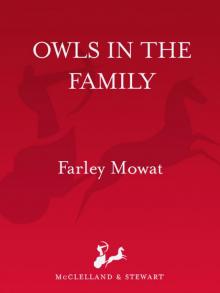 Owls in the Family
Owls in the Family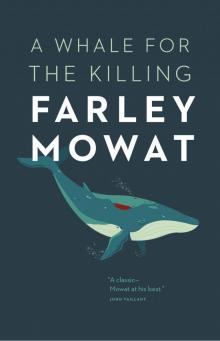 A Whale for the Killing
A Whale for the Killing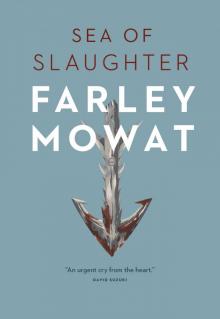 Sea of Slaughter
Sea of Slaughter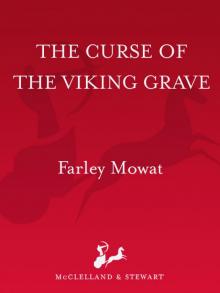 The Curse of the Viking Grave
The Curse of the Viking Grave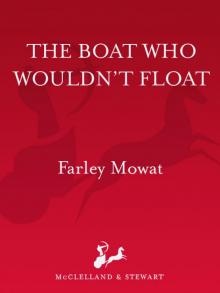 The Boat Who Wouldn't Float
The Boat Who Wouldn't Float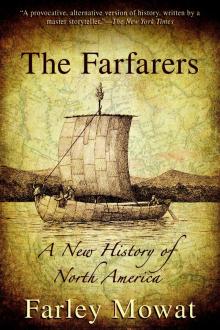 The Farfarers: Before the Norse
The Farfarers: Before the Norse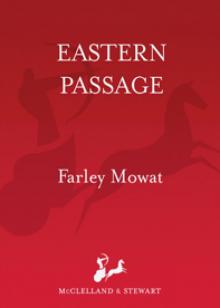 Memoir
Memoir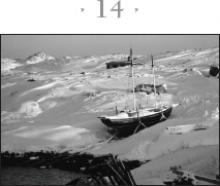 Bay of Spirits: A Love Story
Bay of Spirits: A Love Story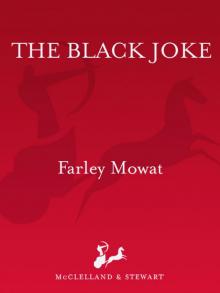 The Black Joke
The Black Joke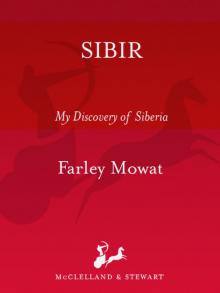 Sibir: My Discovery of Siberia
Sibir: My Discovery of Siberia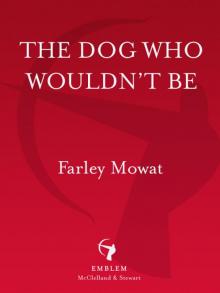 The Dog Who Wouldn't Be
The Dog Who Wouldn't Be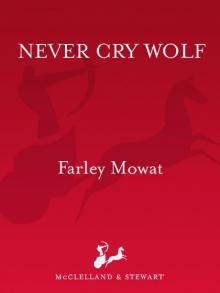 Never Cry Wolf
Never Cry Wolf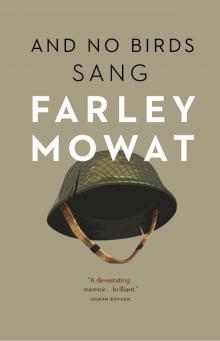 And No Birds Sang
And No Birds Sang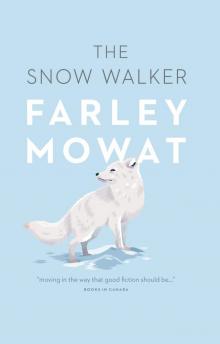 The Snow Walker
The Snow Walker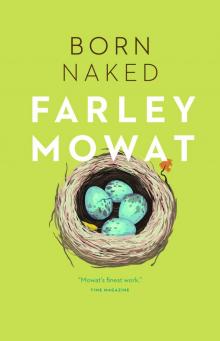 Born Naked: The Early Adventures of the Author of Never Cry Wolf
Born Naked: The Early Adventures of the Author of Never Cry Wolf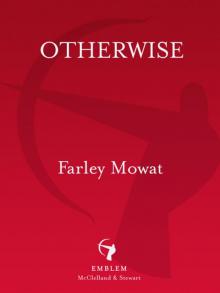 Otherwise
Otherwise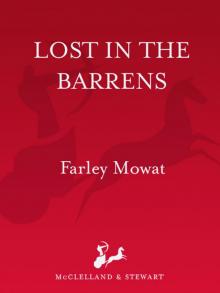 Lost in the Barrens
Lost in the Barrens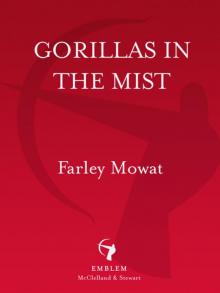 Gorillas in the Mist
Gorillas in the Mist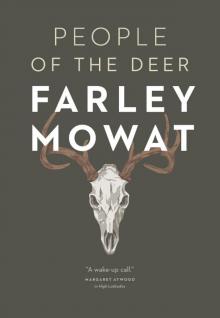 People of the Deer
People of the Deer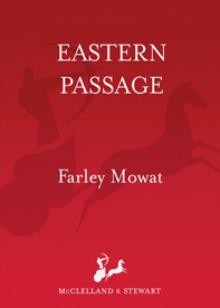 Eastern Passage
Eastern Passage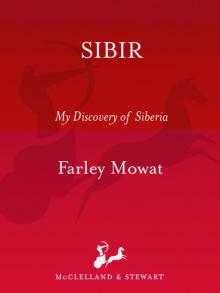 Sibir
Sibir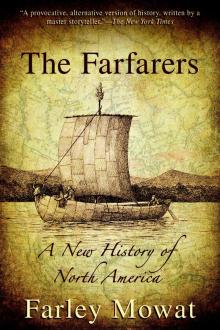 The Farfarers
The Farfarers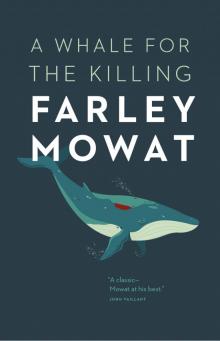 A Whale For The Killing (v5.0)
A Whale For The Killing (v5.0)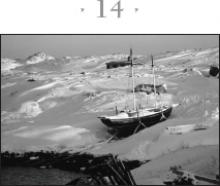 Bay of Spirits
Bay of Spirits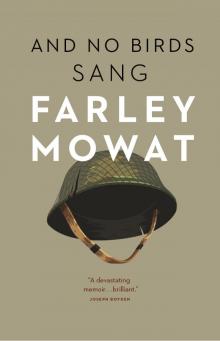 And No Birds Sang (v5.0)
And No Birds Sang (v5.0)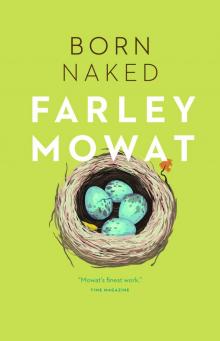 Born Naked
Born Naked